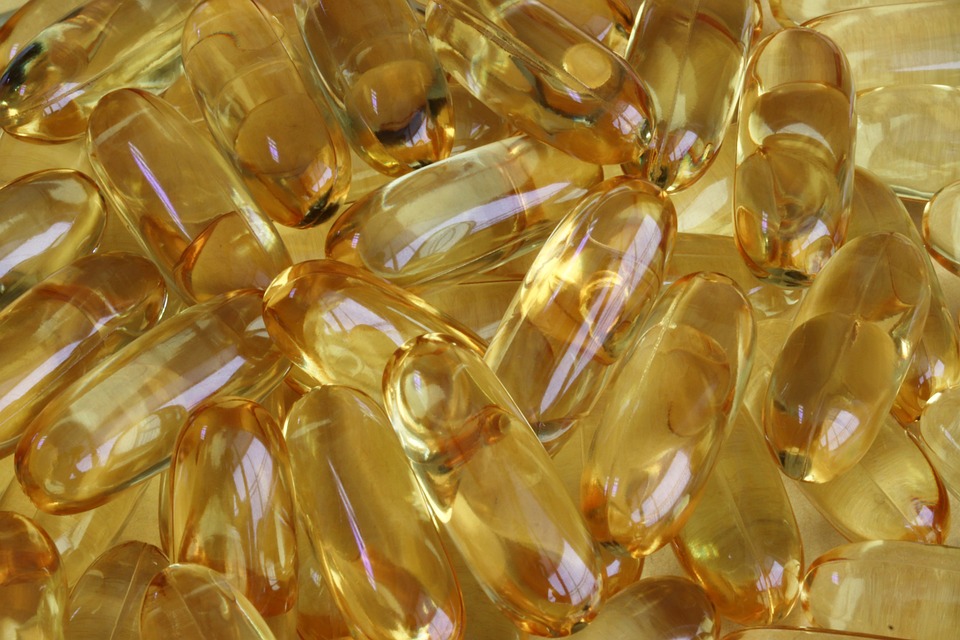MK 677, also known as Ibutamoren, has gained attention in the health and fitness community for its potential to enhance growth hormone levels. This compound is often discussed in the context of bodybuilding and anti-aging, but what exactly does it do, and what are the potential benefits and risks associated with its use? MK 677 is a non-peptide growth hormone secretagogue. This means it stimulates the secretion of growth hormone (GH) by mimicking the action of ghrelin, a hormone that regulates appetite and energy balance. Unlike other growth hormone stimulants, MK 677 is taken orally, making it a convenient option for those looking to increase GH levels without injections. MK 677 works by binding to ghrelin receptors in the brain, which in turn stimulates the pituitary gland to release more growth hormone. This increase in GH can lead to a rise in insulin-like growth factor 1 (IGF-1), a hormone that plays a key role in growth and development. The effects of MK 677 on GH and IGF-1 levels have been studied in various clinical trials, showing promising results. MK 677 is often used for its potential benefits, which include: While MK 677 offers several potential benefits, it is not without risks. Some reported side effects include: Several studies have explored the effects of MK 677 on human health. In one study, healthy elderly participants experienced an increase in muscle mass and bone density after taking MK 677 for a year. Another study involving young adults showed improved sleep quality and increased GH levels after short-term use. These studies highlight the potential of MK 677 as a therapeutic agent for conditions related to muscle wasting and bone density loss. However, more research is needed to fully understand its long-term effects and safety profile. MK 677 is typically taken in doses ranging from 10 to 25 mg per day. The optimal dosage can vary based on individual goals and response to the compound. It is often used in cycles, with breaks in between to prevent potential side effects and maintain effectiveness. As with any supplement, it is advisable to consult with a healthcare professional before starting MK 677, especially for those with pre-existing health conditions or those taking other medications. MK 677 presents an intriguing option for those looking to enhance growth hormone levels for muscle growth, improved recovery, and potential anti-aging benefits. While the compound shows promise, it is important to weigh the potential benefits against the possible side effects. Ongoing research will continue to shed light on its efficacy and safety, helping individuals make informed decisions about its use. Mushroom coffee has gained significant popularity in recent years, blending the rich flavors of coffee with the health benefits of medicinal mushrooms. This unique beverage offers a delightful alternative for those seeking a healthier caffeine fix. In 2024, several brands have emerged as leaders in the mushroom coffee market, each offering distinct blends and benefits. This article explores the top brands and the health advantages of incorporating mushroom coffee into your daily routine. Mushroom coffee is a fusion of traditional coffee and powdered medicinal mushrooms. These mushrooms, such as Lion’s Mane, Chaga, and Reishi, are known for their potential health benefits. The combination aims to provide a balanced energy boost without the jitters often associated with regular coffee. The process involves drying and grinding mushrooms into a fine powder, which is then mixed with ground coffee beans. This blend is brewed like regular coffee, offering a similar taste profile with added health benefits. Several brands have stood out in the mushroom coffee market this year, each offering unique blends and flavors. Here are some of the top contenders: Mushroom coffee is not just a trend; it offers several potential health benefits that make it an attractive choice for health-conscious individuals. Mushrooms like Lion’s Mane are known for their neuroprotective properties. Studies suggest that Lion’s Mane may support brain health, improve memory, and enhance focus. This makes mushroom coffee an excellent choice for those looking to boost cognitive performance. Chaga mushrooms are rich in antioxidants, which can help strengthen the immune system. Regular consumption of Chaga-infused coffee may contribute to better overall health and resilience against illnesses. Reishi mushrooms are often used for their calming effects. Incorporating Reishi into your coffee routine may help reduce stress and promote relaxation, making it a great option for unwinding after a long day. Mushrooms like Turkey Tail contain prebiotics that support gut health. Drinking mushroom coffee with Turkey Tail may aid digestion and promote a healthy gut microbiome. Recent studies have highlighted the growing interest in mushroom coffee. A survey conducted in early 2024 revealed that 30% of coffee drinkers have tried mushroom coffee, with 70% of them reporting positive experiences. Additionally, a study published in the Journal of Food Science found that mushroom coffee drinkers experienced fewer caffeine-related side effects compared to those consuming regular coffee. When selecting a mushroom coffee, consider factors such as taste preferences, desired health benefits, and caffeine content. Some brands offer blends with lower caffeine levels, making them suitable for those sensitive to caffeine. Mushroom coffee can vary in taste, from earthy and robust to smooth and mild. Experimenting with different brands and blends can help you find the perfect flavor for your palate. Different mushrooms offer distinct health benefits. If cognitive enhancement is your goal, opt for blends with Lion’s Mane. For immune support, choose options with Chaga or Turkey Tail. Mushroom coffee presents a unique and health-conscious alternative to traditional coffee. With a variety of brands offering diverse blends, there’s something for everyone in the mushroom coffee market. Whether you’re seeking cognitive enhancement, immune support, or stress reduction, mushroom coffee can be a valuable addition to your daily routine. As the popularity of this beverage continues to rise, exploring the top brands and their offerings can help you discover the perfect cup to suit your needs. BPC-157, a peptide compound, has gained attention for its potential therapeutic benefits. Originally derived from a protein found in the stomach, this compound is now available in various forms, including capsules. This article explores the benefits, recommended dosages, and effectiveness of BPC-157 capsules. BPC-157, short for Body Protection Compound-157, is a synthetic peptide consisting of 15 amino acids. It is derived from a protein found in human gastric juice. Research suggests that BPC-157 may have regenerative properties, making it a subject of interest in the field of medicine. BPC-157 capsules are believed to offer several health benefits. Some of the most notable include: Several studies have explored the effects of BPC-157. For instance, a study published in the Journal of Physiology demonstrated that BPC-157 significantly improved the healing of tendon injuries in rats. Another study in the Journal of Pharmacological Sciences highlighted its potential in reducing inflammation and promoting gut health. While these studies are promising, it’s important to note that most research has been conducted on animals. Human studies are limited, and more research is needed to fully understand the effects of BPC-157 in humans. Determining the appropriate dosage of BPC-157 capsules can be challenging due to the limited human studies. However, anecdotal evidence and animal studies provide some guidance. It’s advisable to start with a lower dose and gradually increase it while monitoring the body’s response. Consulting with a healthcare professional before starting any new supplement regimen is always recommended. The effectiveness of BPC-157 capsules can vary based on individual factors such as age, health condition, and lifestyle. While some users report significant improvements in healing and recovery, others may experience minimal effects. Many users have shared positive experiences with BPC-157 capsules. For example, athletes have reported faster recovery times from injuries, while individuals with chronic pain have noted reduced discomfort. These testimonials, while encouraging, should be considered alongside scientific research. BPC-157 capsules present a promising option for those seeking to enhance healing and recovery. With potential benefits ranging from wound healing to improved gut health, this peptide has captured the interest of researchers and users alike. While animal studies provide a foundation for understanding its effects, more human research is needed to confirm its efficacy and safety. As with any supplement, consulting with a healthcare professional is advisable before beginning use. By considering individual health needs and starting with a conservative dosage, users can explore the potential benefits of BPC-157 capsules. In an era where mental acuity and focus are highly valued, nootropics have emerged as a popular choice for those seeking cognitive enhancement. These substances, often referred to as “smart drugs,” are designed to improve brain function, memory, creativity, and motivation. As we step into 2024, let’s explore the top 10 nootropics that promise to elevate your mental performance. Modafinil is a well-known nootropic that has gained popularity for its ability to enhance wakefulness and cognitive function. Originally developed to treat sleep disorders like narcolepsy, it is now widely used by individuals seeking to improve focus and productivity. Studies have shown that Modafinil can significantly enhance executive function, making it a favorite among professionals and students alike. This combination is a classic in the world of nootropics. L-Theanine, an amino acid found in tea leaves, is known for its calming effects. When paired with caffeine, it can enhance alertness and focus without the jittery side effects often associated with caffeine alone. Research indicates that this duo can improve attention and task performance, making it a popular choice for those needing sustained concentration. Bacopa Monnieri is an ancient herb used in traditional Ayurvedic medicine. It is renowned for its ability to improve memory and cognitive function. Clinical trials have demonstrated that Bacopa can enhance memory recall and reduce anxiety, making it a valuable addition to any nootropic stack. Rhodiola Rosea is an adaptogenic herb that helps the body adapt to stress. It is known for its ability to reduce fatigue and improve mental performance. Studies have shown that Rhodiola can enhance cognitive function, particularly in stressful situations, making it a great choice for those with demanding lifestyles. Lion’s Mane Mushroom is a natural nootropic that has gained attention for its neuroprotective properties. It is believed to stimulate nerve growth factor (NGF) production, which supports brain health and cognitive function. Research suggests that Lion’s Mane can improve memory and cognitive performance, making it a promising option for long-term brain health. Ginkgo Biloba is one of the oldest living tree species and has been used in traditional medicine for centuries. It is known for its ability to improve blood flow to the brain, which can enhance cognitive function and memory. Studies have shown that Ginkgo Biloba can improve attention and memory in healthy individuals, making it a popular choice for cognitive enhancement. Noopept is a synthetic nootropic that is known for its potent cognitive-enhancing effects. It is believed to improve memory, learning, and focus by increasing the levels of brain-derived neurotrophic factor (BDNF). Research indicates that Noopept can enhance cognitive performance and protect the brain from oxidative stress. Ashwagandha is an adaptogenic herb that has been used in traditional Ayurvedic medicine for centuries. It is known for its ability to reduce stress and anxiety, which can have a positive impact on cognitive function. Studies have shown that Ashwagandha can improve memory and cognitive performance, making it a valuable addition to any nootropic regimen. Creatine is a well-known supplement in the fitness world, but it also has cognitive benefits. It is believed to enhance brain energy metabolism, which can improve cognitive function and memory. Research has shown that creatine supplementation can improve short-term memory and intelligence, making it a versatile nootropic. Phosphatidylserine is a phospholipid that is essential for healthy brain function. It is known for its ability to improve memory and cognitive function. Studies have shown that phosphatidylserine supplementation can enhance memory, attention, and cognitive performance, making it a valuable addition to any nootropic stack. The quest for enhanced cognitive function and focus has led to the rise of nootropics as a popular choice for many. From natural herbs like Bacopa Monnieri and Rhodiola Rosea to synthetic options like Modafinil and Noopept, there is a wide range of options available to suit different needs and preferences. Whether you’re a student, professional, or simply looking to boost your brainpower, these top 10 nootropics for 2024 offer promising benefits for cognitive enhancement. In recent years, nootropic supplements have gained significant attention for their potential to enhance cognitive function. Among these, Alpha Brain has emerged as a popular choice. This article explores the benefits, side effects, and user experiences associated with Alpha Brain in 2024. Alpha Brain is a dietary supplement developed by Onnit, designed to support cognitive functions such as memory, focus, and mental clarity. It is marketed as a nootropic, a class of substances that aim to improve brain performance. The formulation of Alpha Brain includes a blend of natural ingredients: Users of Alpha Brain report a variety of cognitive benefits. Here are some of the most commonly noted: Many users experience improved focus and concentration, which can be beneficial for tasks requiring sustained attention. This effect is often attributed to the combination of L-Theanine and Alpha-GPC. Ingredients like Bacopa Monnieri and Huperzine A are associated with memory enhancement. Users have reported better recall and retention of information. Alpha Brain is said to promote mental clarity, helping users think more clearly and make decisions more efficiently. This can be particularly useful in high-pressure situations. Some users find that Alpha Brain helps reduce stress and anxiety, likely due to the calming effects of L-Theanine. While many users report positive experiences, some have noted side effects. It’s important to be aware of these before starting any new supplement. User experiences with Alpha Brain vary, with many praising its cognitive benefits while others express concerns about side effects. Numerous users have shared positive feedback, highlighting improvements in focus, memory, and overall mental performance. For instance, a study conducted by the Boston Center for Memory found that Alpha Brain users showed significant improvements in verbal memory compared to a placebo group. Conversely, some users have reported minimal effects or adverse reactions. Online forums and reviews often mention headaches and gastrointestinal issues as common complaints. Research on Alpha Brain and its ingredients provides insight into its potential efficacy. A double-blind, placebo-controlled study published in the journal “Human Psychopharmacology” found that Alpha Brain significantly improved verbal memory and executive function in healthy adults. Statistics from user surveys indicate that approximately 70% of users report positive cognitive effects, while around 15% experience side effects. These figures suggest that while Alpha Brain may be beneficial for many, it may not be suitable for everyone. Alpha Brain continues to be a popular choice among nootropic enthusiasts in 2024. Its blend of natural ingredients offers potential cognitive benefits, including enhanced focus, memory, and mental clarity. While many users report positive experiences, some encounter side effects such as headaches and gastrointestinal discomfort. As with any supplement, individual experiences may vary, and consulting with a healthcare professional before starting a new regimen is advisable.
MK 677: Benefits, Side Effects, and How It Works Explained
MK 677: Benefits, Side Effects, and How It Works Explained
What is MK 677?
How Does MK 677 Work?
Potential Benefits of MK 677
Side Effects of MK 677
Research and Case Studies
Usage and Dosage
Conclusion
Best Mushroom Coffee of 2024: Top Brands and Health Benefits
Best Mushroom Coffee of 2024: Top Brands and Health Benefits
Understanding Mushroom Coffee
How Mushroom Coffee is Made
Top Mushroom Coffee Brands of 2024
Health Benefits of Mushroom Coffee
Enhanced Cognitive Function
Immune System Support
Stress Reduction and Relaxation
Improved Digestive Health
Case Studies and Statistics
Choosing the Right Mushroom Coffee
Flavor Profiles
Health Goals
Conclusion
BPC-157 Capsules: Benefits, Dosage, and Effectiveness Explained
BPC-157 Capsules: Benefits, Dosage, and Effectiveness Explained
Understanding BPC-157
Potential Benefits of BPC-157 Capsules
Research and Case Studies
Recommended Dosage of BPC-157 Capsules
General Dosage Guidelines
Effectiveness of BPC-157 Capsules
Factors Influencing Effectiveness
User Experiences and Testimonials
Conclusion
Top 10 Best Nootropics for 2024: Boost Your Brainpower and Focus
Top 10 Best Nootropics for 2024: Boost Your Brainpower and Focus
1. Modafinil
2. L-Theanine and Caffeine
3. Bacopa Monnieri
4. Rhodiola Rosea
5. Lion’s Mane Mushroom
6. Ginkgo Biloba
7. Noopept
8. Ashwagandha
9. Creatine
10. Phosphatidylserine
Conclusion
Alpha Brain Review 2024: Benefits, Side Effects, and User Experiences
Alpha Brain Review 2024: Benefits, Side Effects, and User Experiences
What is Alpha Brain?
Ingredients
Benefits of Alpha Brain
Enhanced Focus and Concentration
Improved Memory
Mental Clarity
Stress Reduction
Potential Side Effects
Common Side Effects
Less Common Side Effects
User Experiences
Positive Experiences
Negative Experiences
Scientific Studies and Statistics
Conclusion
THCa Flower: Key Benefits Explained
In recent years, the cannabis industry has seen a surge in interest surrounding various cannabinoids, each offering unique properties and potential benefits. Among these, THCa (tetrahydrocannabinolic acid) has garnered attention for its distinct characteristics and potential advantages. This article explores the key benefits of THCa flower, providing insights into its uses and effects.
Understanding THCa
THCa is a non-psychoactive cannabinoid found in raw and live cannabis plants. Unlike THC, which is known for its psychoactive effects, THCa does not produce a “high” when consumed in its natural form. This makes it an appealing option for those seeking the therapeutic benefits of cannabis without the mind-altering effects.
How THCa Converts to THC
THCa transforms into THC through a process called decarboxylation. This occurs when cannabis is exposed to heat, such as during smoking or cooking. The heat removes a carboxyl group from THCa, converting it into the psychoactive compound THC. This conversion is why raw cannabis does not produce the same effects as heated or smoked cannabis. love and this is abuse if your partner does this to you
Potential Health Benefits of THCa
Research into THCa is still in its early stages, but preliminary studies and anecdotal evidence suggest several potential health benefits. These include:
- Anti-inflammatory Properties: THCa may help reduce inflammation, making it a potential option for those with inflammatory conditions such as arthritis.
- Neuroprotective Effects: Some studies indicate that THCa might offer neuroprotective benefits, which could be beneficial for neurodegenerative diseases.
- Anti-emetic Properties: THCa has shown promise in reducing nausea and vomiting, which could be helpful for patients undergoing chemotherapy.
- Appetite Stimulation: Like THC, THCa may help stimulate appetite, which can be beneficial for individuals with appetite loss due to medical conditions.
Case Studies and Research
While comprehensive clinical trials are limited, several studies have highlighted the potential of THCa. For instance, a study published in the British Journal of Pharmacology found that THCa exhibited anti-inflammatory properties in animal models. Another study in the Journal of Neuroimmune Pharmacology suggested that THCa might have neuroprotective effects, offering hope for conditions like Alzheimer’s disease.
Anecdotal evidence from patients and healthcare providers further supports these findings. Many individuals report relief from symptoms such as pain and inflammation when using THCa-rich products.
Consumption Methods
THCa can be consumed in various ways, each offering different benefits and experiences. Some popular methods include:
- Raw Consumption: Consuming raw cannabis leaves or flowers in smoothies or salads preserves THCa in its natural form.
- Tinctures and Oils: These products allow for precise dosing and can be added to food or beverages.
- Topicals: THCa-infused creams and balms can be applied directly to the skin for localized relief.
Legal Considerations
The legal status of THCa varies by region. In some areas, THCa is considered legal due to its non-psychoactive nature, while in others, it falls under the same regulations as THC. It’s important for consumers to understand the laws in their area before purchasing or using THCa products.
Conclusion
THCa flower offers a range of potential benefits, from anti-inflammatory and neuroprotective effects to appetite stimulation. While research is still developing, the existing studies and anecdotal evidence suggest promising therapeutic applications. As interest in cannabis continues to grow, THCa stands out as a unique cannabinoid with significant potential. Consumers interested in exploring THCa should consider their individual needs and consult with healthcare professionals to determine the best approach for their circumstances.
Gold IRA Companies
THCa Flowers
Mushroom Coffee
Mushroom Gummies
Delta 9 Gummies
Peptides
Architect
Personal Injury Lawyer
Sell A Business




